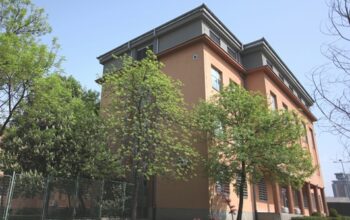Last month’s breakthrough agreement among BiH’s main political parties proves that BiH’s elected leaders can find common ground when the international community respects BiH’s sovereignty and gives its leaders political space.
On December 28, the major Serb, Bosniak, and Croat parties of BiH agreed on the composition of a new BiH Council of Ministers, breaking a deadlock that had lasted more than a year. They also agreed on new census and state aid laws, resolving two longstanding disputes that have held back BiH’s progress toward EU integration.
It was not international impositions or pressure that made this agreement possible; it was their absence. Indeed, the parties reached agreement only after it had become clear that the High Representative would not intervene forcefully on behalf of the Bosniak parties, as he had done during last year’s formation of the government of the Federation.
In March, following the failure of OHR-hosted talks, the largest Bosniak party, the SDP, formed a Federation government in brazen violation of the Federation Constitution. The illegally formed government excluded the two largest Croat parties and gave positions reserved for Croats to either to Bosniak parties or fringe Croat parties such as the extremist HSP-BiH.
The BiH Central Election Commission promptly declared the formation of the Federation government unlawful and annulled it. The High Representative, however, without any legal authority, responded by handing down a decree overruling the CEC’s decision. The High Representative’s March decree, as the President of the International Crisis Group wrote, “undermined state bodies and the rule of law.” Even Bosniak parties blasted the decree; the Social Democratic Union said it “egregiously violated the principle of legality and legitimacy of the institutions of the state.” The Federation government, having been illegally formed and surviving solely because of a foreign diplomat’s unlawful decree, continues to suffer from a severe deficit of legitimacy.
The March decree also badly undermined efforts to form of a new BiH Council of Ministers. The High Representative’s forceful intervention on behalf of the SDP signaled to the SDP that it could expect similar help in the BiH-level negotiations, emboldening it to make maximalist demands.
The High Representative’s intervention to prop up a Federation government in which the Bosniak parties had marginalized the Croats also threatened the Croats’ constitutional status as one of BiH’s three Constituent Peoples. This exacerbated tensions between the major Croat and Bosniak parties, further crippling the negotiations on the formation of a new BiH Council of Ministers.
The arrival in September of EU Special Representative Peter Sørensen marked a turning point. The EU’s separation of its Special Representative from the High Representative suggested a shift away from the High Representative’s illegal intervention in BiH’s internal affairs and toward partnership in helping BiH meet the conditions for greater EU integration.
By December, it must have become clear to the SDP that the High Representative was unlikely to intervene on the Bosniak parties’ behalf as it had done so disastrously during the formation of the Federation Government. This realization, combined with Ambassador Sørensen’s constructive approach, made the December agreement possible.
The principal sticking point in the talks on the BiH Council of Ministers was the SDP’s refusal to allow the next chairman of the Council to come from one of the Croat parties, as dictated by the rotation principle. The agreement on the Council of Ministers rightly gives the chairmanship to a member of one of the major Croat parties.
As in any freely negotiated agreement, no party got everything it wanted. Still, the agreement is a victory for all who want the BiH of the Dayton Accords to work. Because the agreement was freely agreed to by leaders elected by the people of BiH, the new Council of Ministers will enjoy the legitimacy it needs to govern effectively. The lesson for the international community is to respect BiH’s sovereignty and give BiH’s leaders the political space to negotiate freely.

